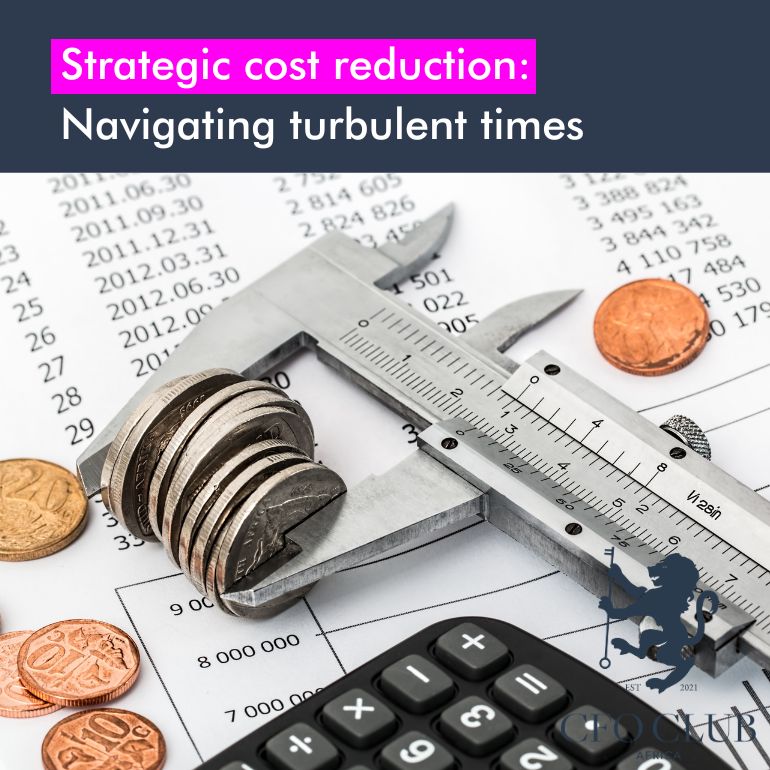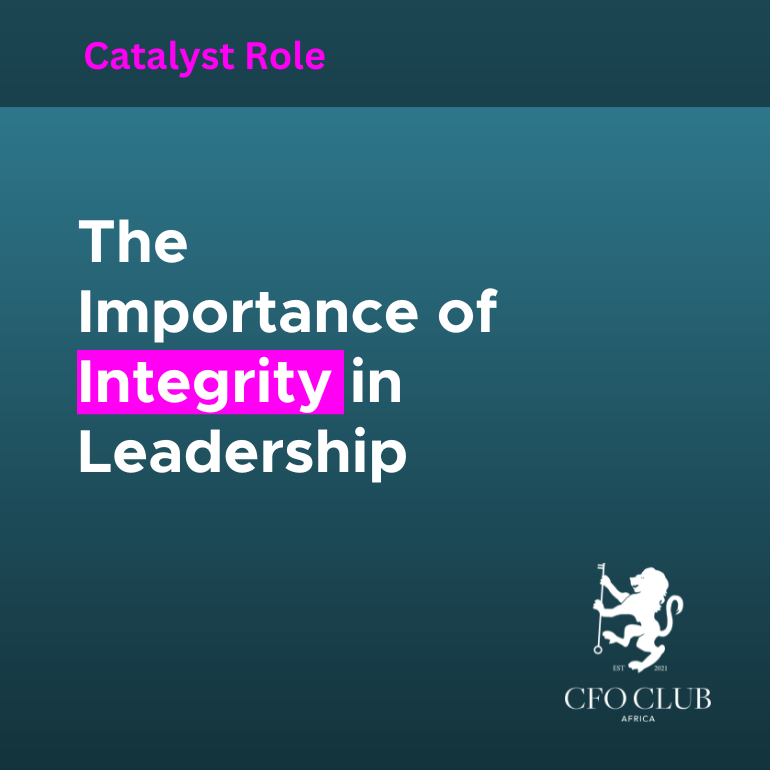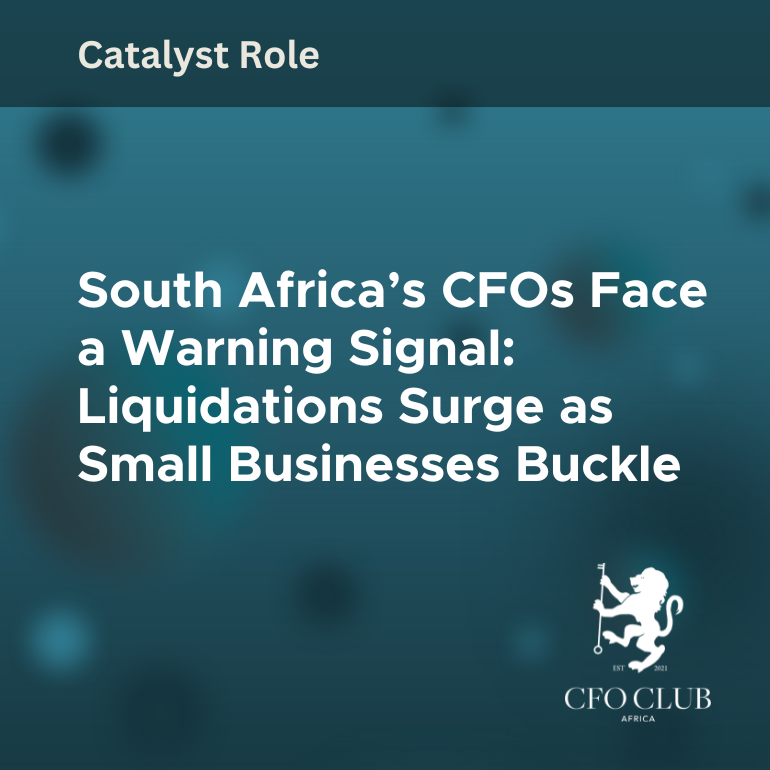The CFO Confessional: Bless Me, Market, For I Have Sinned
The CFO Confessional: Bless Me, Market, For I Have Sinned
When a corporate scandal breaks, it sends shockwaves far beyond the headlines. Stakeholders lose faith, employees question their future, and market confidence deteriorates. The organisation is no longer assessed solely on its performance but also on its integrity. In these moments, the role of the Chief Financial Officer becomes especially critical. While legal and communications teams may lead initial responses, it is the CFO who must rebuild the financial and reputational foundations of the business.
Restoring trust is not about quick wins or superficial public relations strategies. It requires transparency, consistency, and a sustained commitment to sound governance. A scandal creates a credibility gap. The CFO must lead the effort to close it, both through financial rigour and ethical leadership.
Establishing Financial Credibility as a Foundation
The first step in rebuilding market confidence is to restore the reliability of financial information. If the scandal involved misreporting, aggressive accounting policies, or deliberate manipulation of results, the damage to the organisation’s credibility will be severe. The CFO must lead a comprehensive clean-up of financial reporting processes.
This includes restating prior-period financials where necessary, strengthening internal controls, and ensuring that audit findings are addressed in full. The finance team must be empowered to report accurately and independently. Any previous attempts to obscure the truth must be acknowledged and corrected. The CFO must work closely with external auditors, regulators, and investors to demonstrate that the financial statements going forward are trustworthy and free from manipulation.
Enhancing Internal Controls and Risk Management
A scandal often reveals weaknesses in internal controls. Whether the issue arose from fraud, compliance failures, or governance lapses, the CFO must ensure that the risk management framework is upgraded. This includes implementing more robust monitoring, improving segregation of duties, enhancing financial approval processes, and embedding early warning systems to detect anomalies.
The CFO should take a proactive approach by conducting a full internal control assessment, identifying vulnerable areas, and introducing appropriate remedial actions. Engaging internal audit functions and reporting regularly to the board’s audit committee can help provide the oversight and assurance required to rebuild confidence.
Restoring Investor and Market Confidence
Markets respond to consistency and predictability. After a scandal, investors are likely to be sceptical of optimistic projections or complex turnaround narratives. The CFO must resist the temptation to overpromise and instead focus on delivering clear, achievable targets. Short-term forecasts should be conservative and grounded in verifiable assumptions.
It is equally important to establish a cadence of transparent communication. Quarterly earnings calls, investor presentations, and integrated reports should be used to explain how the business is progressing, what corrective actions have been taken, and how performance is being monitored. The CFO must be willing to answer difficult questions directly, without deflection.
Rebuilding trust in the capital markets also involves ensuring compliance with all listing requirements, financial reporting standards, and disclosure obligations. Any suggestion of ongoing opacity or evasiveness will only delay recovery. Reputational repair is fragile; it relies on rigorous follow-through and evidence of cultural change.
Rebuilding Internal Confidence and Culture
While external stakeholders demand transparency, internal stakeholders require reassurance. Employees, particularly in the finance function, may feel demoralised, fearful, or uncertain about their roles. The CFO must lead by example, demonstrating ethical behaviour, fairness, and a clear sense of direction.
Communicating regularly with internal teams is essential. Staff need to know what is changing, why it is changing, and how it will improve the organisation’s future. The CFO can play a pivotal role in restoring pride and discipline within the finance team by refocusing efforts on excellence, accuracy, and professionalism.
In organisations where the scandal stemmed from cultural weaknesses, such as excessive risk-taking or a win-at-all-costs mentality, the CFO must actively contribute to shifting the tone at the top. This includes aligning incentive structures with sustainable performance, promoting ethical decision-making, and ensuring that finance is positioned as a guardian of integrity, not just a technical function.
Supporting Board Oversight and Governance Reform
After a corporate scandal, the board of directors often undergoes restructuring, and governance frameworks are reassessed. The CFO must support the board and executive team in redefining oversight structures, updating governance charters, and enhancing reporting lines.
This includes improving the flow of information between finance and the board, strengthening the role of the audit and risk committees, and ensuring that the board receives accurate, timely, and relevant financial information. The CFO should also take the lead in driving improvements in compliance culture, including the implementation of whistle-blower systems, ethics training, and more effective consequence management mechanisms.
Managing Reputational Risk Through Measured Action
The CFO is also responsible for understanding and managing reputational risk. This means anticipating how stakeholders, including regulators, customers, lenders, and the public—will perceive key financial decisions. During a recovery period, every capital allocation, investment decision, or divestiture will be scrutinised through the lens of reputational impact.
For example, announcing executive bonuses or shareholder dividends too soon after a scandal can undermine the narrative of accountability and reform. The CFO must apply sound judgement, balancing financial strategy with stakeholder expectations and social licence to operate. Financial discipline must go hand in hand with ethical sensitivity.
Demonstrating Long-Term Commitment to Change
True recovery from a scandal is measured over time. The CFO plays a long game. They must continuously reinforce the message that the organisation has learned from its mistakes and is committed to better practices. This commitment must be visible in everyday decision-making, not just formal statements.
Embedding financial integrity into the organisational culture is a long-term effort. It requires consistent leadership, appropriate systems, and aligned incentives. The CFO’s role is not to carry this burden alone, but to lead by example and help build a culture where trust is not only repaired, but protected.
Conclusion: A Strategic and Ethical Imperative
Rebuilding trust after a corporate scandal is one of the most complex and delicate challenges a CFO can face. It demands technical excellence, regulatory fluency, emotional intelligence, and unwavering ethical standards. The CFO must lead the financial recovery while helping to restore the organisation’s credibility, reputation, and internal morale.
By providing accurate information, reinforcing governance, and demonstrating a commitment to transparency, the CFO becomes more than a financial manager. They become a steward of trust, a voice of reason, and a key architect of the organisation’s return to legitimacy.





